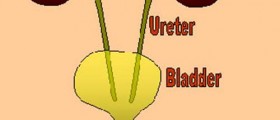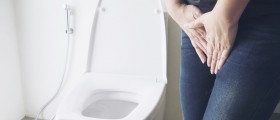
The pain can occur in a pelvis, it can be a form of bladder pressure, or bladder pain, and the pain can feel like mild burning pain or severe pain, while some people may experience period of remission. Although women are most often affected by interstitial cystitis, men and young boys are not excluded. More than 1 million of Americans suffer from interstitial cystitis and its effects can have a long lasting negative impact on person's life. Symptoms of interstitial cystitis actually vary from person to person, and also over time. Sometimes menstruation may trigger it, sometimes sexual intercourse and sometimes allergies.
Symptoms include a urgent and persistent need to urinate, and by persistent, I mean persistent: some people urinate as 60 times a day. Urination is often in small amounts and throughout the day and night. When urine is tested, it is often free of bacteria, although interstitial cystitis can cause urinary tract infection. As already mentioned, pelvic pain is an often symptom. Pelvic pain can occur during sexual intercourse or men can experience painful ejaculation. The pain can occur between the vagina and anus in women and between scrotum and anus in men. Since there is no definitive test to identify IC/PBS, doctors must rule out other treatable conditions before considering a diagnosis of IC/PBS. Additionally there is no cure yet found to treat interstitial cystitis, therefore current treatments are aimed at relieving symptoms.
- Photo courtesy of OpenStax College by Wikimedia Commons: commons.wikimedia.org/wiki/File:2605_The_Bladder.jpg

















Your thoughts on this
Loading...